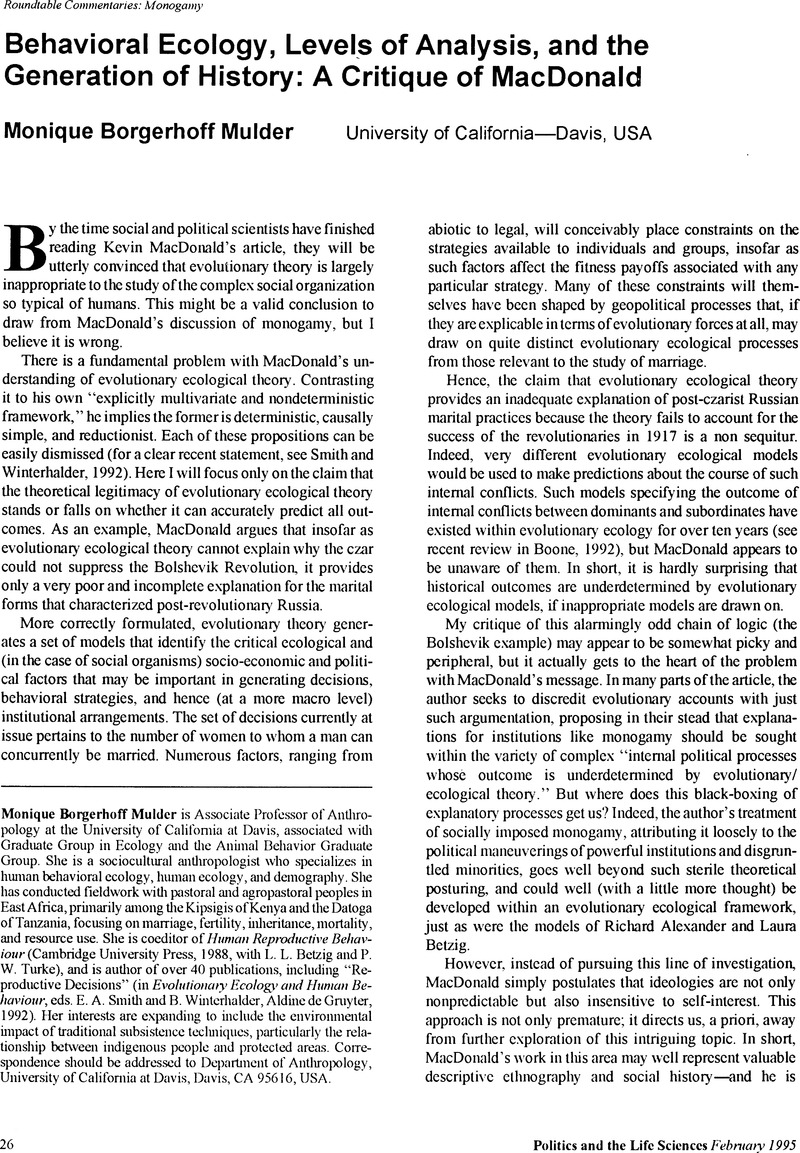No CrossRef data available.
Article contents
Behavioral Ecology, Levels of Analysis, and the Generation of History: a Critique of MacDonald
Published online by Cambridge University Press: 17 May 2016
Abstract
An abstract is not available for this content so a preview has been provided. Please use the Get access link above for information on how to access this content.

- Type
- Roundtable Commentaries
- Information
- Copyright
- Copyright © Association for Politics and the Life Sciences
References
Boone, J.L. (1992). “Competition, Conflict, and Development of Social Hierarchies.” In Smith, E.A. and Winterhalder, B., (eds.), Evolutionary Ecology and Human Behavior. New York: Aldine de Gruyter.Google Scholar
Boyd, R. and Richerson, P.J. (1992). “How Macroevolutionary Processes Give Rise to History.” In Nitecki, M.H. and Nitecki, D.V., (eds.), History and Evolution. Albany, NY: State University of New York Press.Google Scholar
Smith, E.A. and Winterhalder, B. (1992). “Natural Selection and Decision Making: Some Fundamental Principles.” In Smith, E.A. and Winterhalder, B., (eds.), Evolutionary Ecology and Human Behavior. New York: Aldine de Gruyter.Google Scholar


